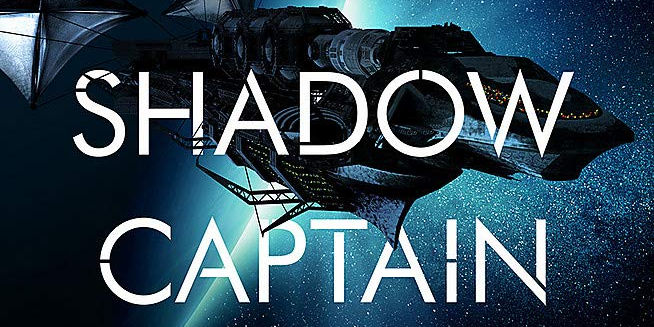Shadow Captain

I made a mistaken when I selected Shadow Captain, by Alistair Reynolds, to read. Selecting it from our family Kindle library, it was a few chapters before it started seeming a bit odd in the amount of references to the incredibly fleshed out pasts of the various characters. Almost as if a whole book had been written about them… As it turned out, this is a sequel to Revenger, the first book in the series. There is a third out as well, Bone Silence.
Coming into the middle of the series though wasn’t too much of a problem (I spent many years buying books from second hand bookshops, so picking up a book in the middle of a series because that’s all they had isn’t new to me), and there was enough recap of the setting background and characters meant it all made reasonable sense. It also probably helped that the plot was fairly simple. There’s nothing complicated going on, and most of the really interesting stuff is due to the setting.
This book picks up after a couple of sisters have taken over the ship Revenger of the infamous pirate captain Bosa Sennen. Though set in space, amongst the ruins of millions of worlds (I assume it is set in our solar system some unspecified time in the far distant future), the setting and technology is very much designed to give a “ocean pirates in space” feel to it. However, the science and technology isn’t anywhere near as soft as it could have been, and there’s enough consistency and nods to decent science to make it acceptable to someone like myself who prefers a harder type of science fiction.
The setting is pretty cool, and is the strongest part of the book. The major worlds of the solar system have been dismantled and turned into millions of worldlets. Many have a swallower at their core, which can provide suitable gravity. I assume that these are effectively black holes. There have been multiple collapses and rebuilding of civilisation over millennia (called Occupations), though, so some of the old technology is seen in a more fantastical light (which leads to terminology such as swallowers, ghosties and similar words). However, it’s still a lot more science than fantasy.
Though I enjoyed the book, the characters sometimes felt a bit problematic. Their actions sometimes felt like they were being stupid, selfish or secretive just to drive the plot and create tension, and their choices didn’t always seem to make sense. Whether there’s a reason for that from the first book I don’t know, but it seemed off.
I’m interested in going back and reading the first book in the series to find out more about the setting, and then reading the third to hopefully find out more about the Occupations. If you want complex plots and deep characters though, then this probably isn’t a book for you. If you’re interested in settings and ideas, then it might be. If anything, it felt a bit like an early Stephen Baxter novel – full of great ideas which were good enough to support the story on their own, but not much else.